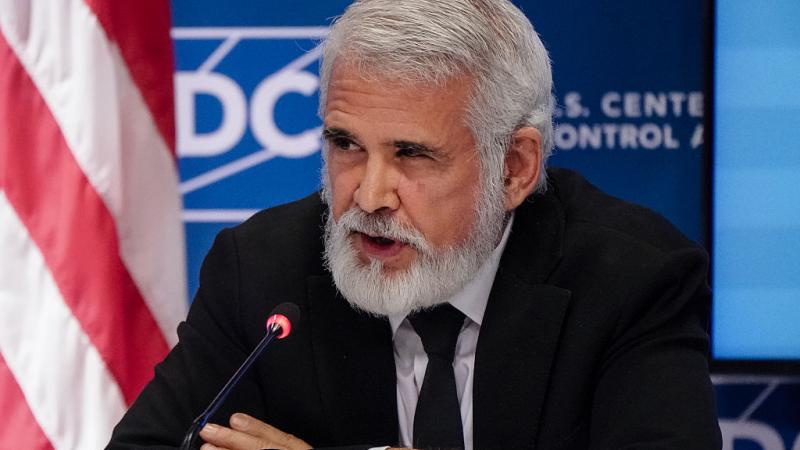Student government refused to fund free speech club if it invited conservative author: letter
Foundation Against Intolerance and Racism argues Emory Law's Student Bar Association also violated discrimination law by telling club seeking recognition that it was too white.
The student government at Emory Law School in Atlanta allegedly had three big problems with a free speech group seeking recognition: It might invite "The Diversity Delusion" author Heather Mac Donald to speak, allow criticism of critical race theory, and its members were too white.
The Student Bar Association (SBA) violated Title VI of the Civil Rights Act by invoking the perceived race of Emory Free Speech Forum (EFSF) members in discussions on whether to charter the group last fall, according to a legal warning letter last week.
The Foundation Against Intolerance and Racism (FAIR), cofounded by black intellectuals including Columbia University's John McWhorter and Brown University's Glenn Loury, is the second free speech group to warn the SBA about its rejection of EFSF.
"We fielded hundreds upon hundreds of legal inquiries and this case moved us" because EFSF is nonpartisan and promotes "free discourse," Letitia Kim, managing director of FAIR's Legal Network, told Just the News. "They were treated very unfairly and completely inconsistently."
The Foundation for Individual Rights in Education (FIRE) recently sought Emory Law's intervention after the SBA ignored its fall warning about rejecting the group for the "real harm" that unmoderated debate could cause.
The administration refused, telling Just the News its hands were tied because of a new COVID-19 moratorium on chartering new student groups. Associate Dean for Marketing and Communications Susan Clark reiterated that statement when asked about FAIR's letter.
Kim said that "seems a little bit pretextual" because student groups have been meeting remotely since the pandemic started. "The Omicron variant doesn't change that, and it certainly doesn't transmit through video screens."
It's the third free-speech controversy for the Emory Law School this month. Three law professors withdrew their essays from the student-run Emory Law Journal because it demanded extensive edits to a "hurtful and unnecessarily divisive" critique of the concept of systemic racism.
Informed that a student government reportedly invoked her name to deny a student group a charter, Manhattan Institute fellow and conservative author Heather Mac Donald told Just the News: "I guess they were drawing on their immediate experience of alleged trauma."
Mac Donald spoke at Emory shortly before COVID-19 lockdowns in 2020, prompting student groups to host a "safe space" but not meaningfully disrupt her speech.
In a warning of things to come, an Emory student government official tried to get her hosts, the College Republicans, investigated for discrimination. The effort failed because her talk wasn't funded by student activity fees.
She has done a few virtual campus appearances since COVID but isn't sure whether students, faculty or administrators have hosted "counterprogramming" in response. Mac Donald said in-person events are unlikely because colleges are still at the "maximum of COVID hysteria."
'Differential treatment'
Kim's letter to SBA President Jadyn Taylor includes previously unreported details about the student government's consideration of a charter for EFSF, going beyond the paraphrased notes from an Oct. 20 meeting obtained by FIRE.
The FAIR lawyer told Just the News she couldn't divulge how she obtained the details mentioned in the letter, except to say its claims are "100% backed by evidence."
The most explosive charge is that the SBA violated federal antidiscrimination law. "During one of the hearings, a board member remarked (incorrectly) that all EFSF officers are 'white' and therefore have the same ideas and are incapable of hosting diverse discussions," the letter said.
Another member was skeptical of funding the group because it has "very few individual[s] of color." Kim said EFSF's officers "are of diverse races, ethnicities, backgrounds, beliefs, and political affiliations."
By deeming skin color "a detriment in this particular case," while funding "numerous organizations based on common ancestry," the student government committed "differential treatment" in violation of Title VI.
The law applies even to a private university student government because Emory receives federal funding and SBA exercises "quasi-administrative functions," she wrote to Taylor, who didn't respond to Just the News queries.
Title VI is "construed pretty broadly" as covering entities that received federal funding and SBA has the power to grant money, Kim told Just the News, pointing to a 2020 court ruling against Villanova University, which is also private.
A federal judge deemed that a dismissed Iranian doctoral student at Villanova made "plausible allegations of discriminatory statements and actions by the faculty" on the basis of his national origin, "both in his oral examination process and his dismissal process."
Roozbeh Astaraee said his advisor told him the department chair has a problem with Iranian men since they purportedly believe "they are higher than women." The precedent is mentioned in Kim's letter, which is copied to Emory's president, general counsel, law dean and student life director.
Other details in Kim's letter: A board member at an undated hearing asked how EFSF would "prevent" a prospective speaker from "criticizing" or "undermining" critical race theory.
"Another member sought assurances that the group would not invite Heather Mac Donald" because "some Emory community members strongly disagree with her viewpoints," the letter paraphrased. It quoted the board as a whole saying it's "extreme" to allow open discourse.
The most extreme student response to Mac Donald may have been 2017 at Claremont McKenna College.
Protesters effectively shut down her Blue Lives Matter speech by blocking entrances to the building, shouting slogans and banging windows, which prompted the college to suspend five students. Mac Donald had been shouted down at UCLA the day before.
She told Just the News she was souring on campus appearances and might not come back to Emory if invited. "It gets a little wearying to be the lightning rod in environments where the faculty thsmelves are unwilling to challenge the absurd myths and deceptions that govern college life," she said.
Showing up on a hostile campus "serves the clarifying purpose of showing what a poor job colleges are doing in turning young people into sane rational adults," but faculty must "step up to the plate" rather than pass the buck to outside speakers, Mac Donald said. "This is a poison and a sickness that is locally generated but obviously widespread."
















